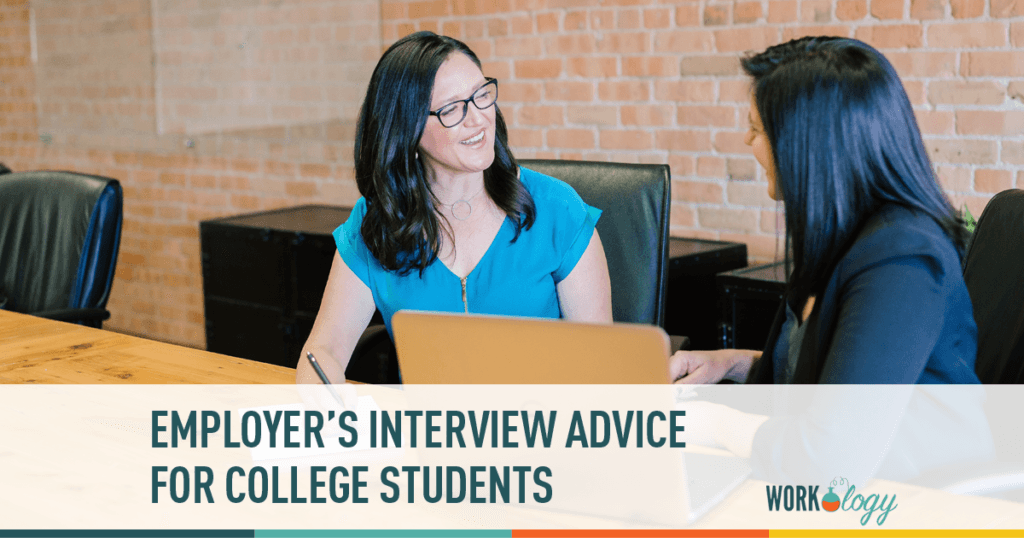Are you gearing up for interviews this spring? Employers are the best source of credible advice. Not all employers and industries are created equal, so you want to determine how to impress your employer of choice. Consider this advice direct from several top employers:
6 pieces of advice for college s
tudents
Dress Right = Know Your Audience
How you dress for an interview will depend on the company and industry. Tony Denhart, University Relations Manager at GE Corporate, advises: “Know your audience. Always dress one notch above that. At GE, it’s not that we expect the suit and tie, but in my opinion, it gives you an edge.”
You may take a different tack in the start-up, entrepreneurial and tech space. Jeff Fernandez, CEO of Grovo in New York City, says “Prospective employees need to be in tune with the corporate culture and social cues.” This applies to interview attire and language. For example, Jeff doesn’t expect to see a suit on a candidate interviewing at Grovo. He prefers neat jeans, button-down shirt and loafers.
Be On Time
Figure out the exact logistics of getting to your destination so there are no surprises on interview day. Some employers will take you out of the running for being late. Your tardiness indicates a lack of planning or interest.
Interview Format and Type
One of the ways you can prepare for an interview is to ask in advance about the structure or format and type. Is it a panel or group interview? Telephone or Skype to start? Successive interviews with department heads? Do they offer campus interviews? What type of interview questions can you expect? Ask in advance to enhance your ability to prepare thoroughly. Dan Black, Americas Director of Recruiting at EY describes: “At Ernst & Young, our interviews include three components: factual questions about the candidate, opinion questions and behavioral questions. At least 50% to 60% of our focus is on the behavioral questions. We want to understand very clearly how the candidate’s recent and actual experiences provide evidence of competency and ability.”
Do Your Research
Every employer agrees on this key success factor for an interview. Do your research. Knowing about the company is an indication of your motivation and interest. Mary Jo Loparco, Director Talent Management of AmeriCares, says “We expect our top candidates to have done their research and know a bit about AmeriCares. If they say they are interested in the work we are doing in disaster response, I hope they can articulate something about what we’ve done in that area. They don’t need to know everything about what we do everywhere, but they should be able to converse about those areas that are of particular interest to them. This demonstrates their initiative among other things and helps us determine who we are going to select.”
Tony Denhart, of GE, adds: “For GE, we are looking for candidates who have done their homework. They know about our different businesses such as healthcare, energy, transportation or appliances. Their questions reflect this advance research and initiative.”
Ask Questions
Your advance company research should prompt many pertinent questions. Save some of your questions for the very end of the interview. It’s Ok to write them down. Tony Denhart of GE says: “At the end of an interview, I always ask if the candidate has any additional questions. I am disappointed if there are none.”
Practice and Prepare
Interviewing is a skill you will need for your entire career. In the end, it comes down to your preparation and practice. Ask the Career Services staff at your college or university about practicing with you. Many schools offer mock interview sessions with employers or college staff.
Are you ready to interview this spring?







